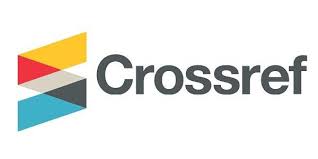PENGARUH RELEVANSI DAN KETEPATAN WAKTU TERHADAP KONSERVATISME DAN KEPUTUSAN PENDANAAN
DOI:
https://doi.org/10.25170/wpm.v15i2.5043Keywords:
Relevance, Timeliness, Conservatism, Financing DecisionsAbstract
This research aims to obtain empirical evidence regarding the influence of relevance and timeliness on conservatism and financing decisions of manufacturing companies listed on the Indonesia Stock Exchange during the 2018 period. The data analysis method employed in this research includes descriptive statistics and multiple linear regression analysis. The study involves 100 manufacturing companies listed on the IDX for the year 2012. The results of the first research model indicate that relevance influences conservatism. In the second research model, timeliness in the presentation of financial statements affects conservatism. The third research model shows that relevance does not affect financing decisions. The fourth research model indicates that timeliness influences financing decisions. This research differs from previous studies, focusing more on decision-making based on attributes of the quality of financial statement information.
References
Anissa, Nur, 2004. “Ketepatan Waktu Penyampaian Laporan Keuangan Kajian Atas Kinerja Manajemen, Kualitas Auditor dan Opini Audit”,BALANCE: Jurnal Akuntansi, Auditing dan Keuangan, Vol. 1, No. 2:42-53.
Belkaoui, Ahmed. 2001. Teori Akuntansi, Salemba Empat, Jakarta.
Chambers, A.E. dan S.H. Penman. 1984. “Timeliness of Reporting and The Stock Price Reaction to Earnings Announcements.” Journal of Accounting Research. Vol 22. No.1 (Spring):pp.21-47.
Daniati, Ninna dan Suhairi, 2006. “Pengaruh Kandungan Informasi Komponen Laporan Arus Kas, Laba Kotor dan Size Perusahaan terhadap Expected Return Saham”. Simposium Nasional Akuntansi IX, Padang.
Dechow, Patricia. “Accounting earnings and cash flows as measures of firm performance: the role of accounting accruals.” Journal of Accounting and Economics 18 (1994): 3-42.
Dechow, Patricia.M. and Ilia D. Dichev. The Quality of Accruals and Earnings: The Role of Accrual Estimation Errors. The Accounting Review 77 Supplement : Quality of Earnings Conference (2002): 35-59.
Fanani, Zaenal (2009). Kualitas Pelaporan Keuangan: Berbagai Faktor Penentu dan Konsekuensi Ekonomis, Jurnal Akuntansi dan Keuangan Indonesia. 6: 20-45.
Feltham, J. dan J. Ohlson. 1995. “Valuation and Clean Surplus Accounting forOperating and Financial Analysis.” Contemporary Accounting Research 11(1995), pp.687-731.
Francis, J. R.,et. al. (2004) Costs of Equity and Earnings Attributes, The Accounting Review. 79:967-1010.
Freeman, Robert J., and Shoulder, Craig D.. (2008). Governmental and Nonprofit Accounting Theory and Practice. Ninth Edition. New Jersey: Pearson International Edition
Ghozali, I. (2013). Aplikasi Analisis Multivariate dengan Program IBM SPSS 22: Update PLS Regresi (7th ed.). Semarang: Universitas Diponegoro.
Ikatan Akuntan Indonesia. (2009). Pernyataan Standar Akuntansi Keuangan: Penyajian Laporan Keuangan (Rev. ed.). Jakarta: Ikatan Akuntan Indonesia.
Indriani, Rini dan Wahiddatul Khoriyah (2010). Pengaruh Kualitas Pelaporan Keuangan terhadap Informasi Asimetri. Simposium Nasional XIII Purwokerto 2010.
J. Supranto, 2008. Statistik Teori dan Aplikasi, Edisi ketujuh Jilid 2: Jakarta, Penerbit Erlangga.
Kiswara, Endang, 2011, Nilai Relevan Dan Reliabilitas Kegunaan-Keputusan Informasi Akuntansi Menurut Sfac No. 2 Dalam Penyajian Laporan Keuangan Dengan Metode-Metode Pembebanan Pajak Penghasilan Berbeda. PhD thesis, Universitas Diponegoro, Semarang.
Lillrank, Paul. 2003. “The quality of information”, International Journal of Quality &Reliability Management Vol. 20 No. 6 pp. 691-703.
Lind, A.D., Marchal, W.G., and Wathen, S.A. (2010). Statistical Techniques in Business and Economics, Fourteenth Edition. New York: McGraw-Hill.
Mainardes,E.W., Alves, H. and Mario Raposo. 2011. “Stakeholder theory: isssue to resolve”. Management Decision vol 49 No. 2, 2011, 226-252.
Naimah, Zahroh dan Siddharta Utama. 2006. Pengaruh Ukuran Perusahaan, Pertumbuhan, dan Profitabilitas Perusahaan Terhadap Koefisien Respon Laba dan Koefisien Respon Nilai Buku Ekuitas: Studi Pada Perusahaan Manufaktur Di Bursa Efek Jakarta. Simposium Nasional Akuntansi (SNA) IX. Padang
Puspitaningtyas, Z. (2012). Relevansi nilai informasi akuntansi dan manfaatnya bagi investor. Ekuitas: Jurnal Ekonomi dan Keuangan , 164-183.
Reeve, James M., Carl S. Warren, and Jonathan E. Duchac, (2012). Principle of Accounting 24th edition. Singapore: Cengange Learning Asia
Sari, C. dan Adhariani, D. 2009. “Konservatisme Perusahaan di Indonesia dan Faktor-Faktor yang Mempengaruhinya.” Simposium Nasional Akuntansi XII, Palembang.
Scott, William R. 2000. “Financial Accounting Theory.” 2th Edition. Canada:Prectice-Hall Inc.
Scott, William R. 2003. Financial Accounting Theory. New Jersey : Prentice Hall Inc
Scott, W. R. 2009. Financial Accounting Theory. 5th Edition. Toronto: Prentice-Hall.
Staubus, George J.2000.The Decisions Usefulness Theory of Accounting: a Limited History.New York:Garland
Uyanto, S.S. (2009). Pedoman Analisis Data Dengan SPSS. Yogyakarta: Graha Ilmu.
Watts, R.L. 2003. Conservatism in accounting part I: explanations and implications. Accounting Horizons 17, 207–221.



